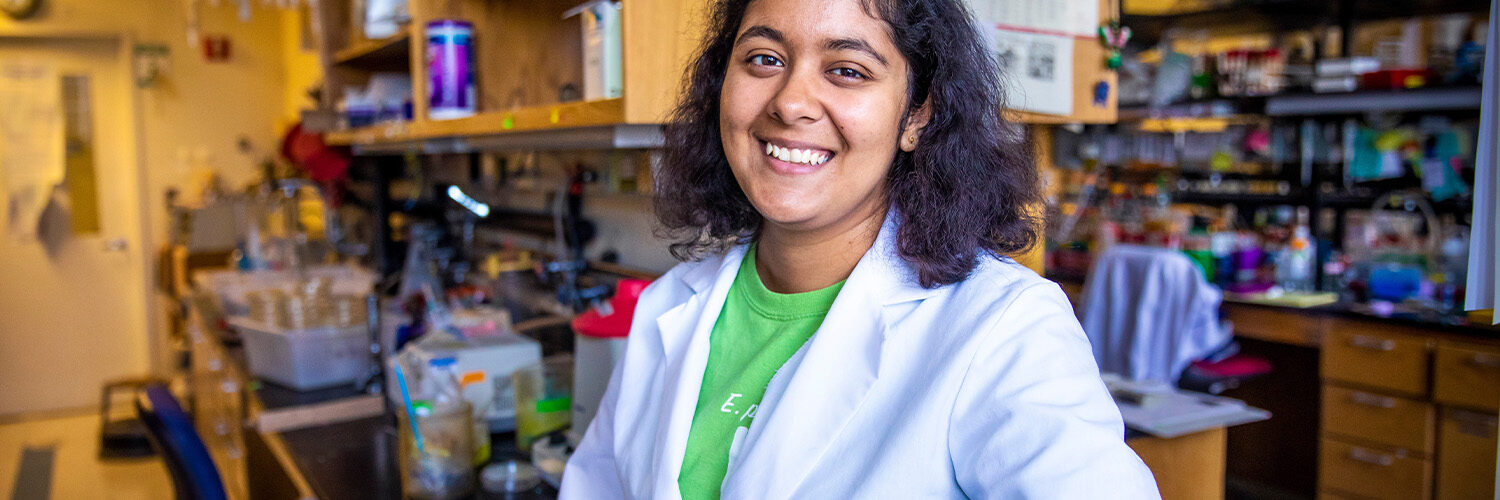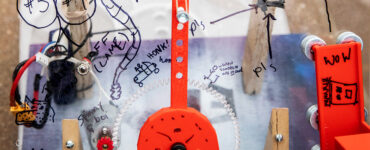My plans after Illinois are to attend graduate school and do research in Astronomy. Because of this, I’ve tried to involve myself in as much research as possible at Illinois. For those of you wanting to be STEM majors, you might find yourself in a similar position soon. It can be a difficult job to get at first, but the experience is worth it. I thought I’d write a blog post about my experience so that it might help you!
The worst that they can say is no!
It’s embarrassing, but the biggest barrier that stopped me from starting research earlier was reaching out to my professors. I’ll admit it—I was scared to send a lot of my professors an email telling them I was interested in doing work with them.
Looking back, I was being dumb. This is probably the biggest piece of advice I can give: Don’t be scared to reach out—the worst a professor can say is no! Be polite and concise when you first reach out to them. It’s important you show up with a genuine interest in their work. Read a couple of their papers, and get an idea of what they’re working on and the problems they are trying to solve.
That being said, don’t spam your professors with emails, either. They are busy people and might not have the time to respond immediately! If you can, try contacting them during breaks when there are no classes going on. They may have more time to consider your request during these breaks!
Treat your research like any other class.
Once you’re in a research lab, great! You’re going to love the experience, and you’ll develop a lot of skills that will be useful later on in your career. However, this doesn’t mean that you can slack off now—conducting undergraduate research is a big commitment and will take a lot of time out of your schedule!
I like to treat my research like a class and have a set time where I work on it each week. I usually spend my entire weekend on research. It’s when my mind is clearest and when I can get the most done. It’s important to have good time-management skills: unlike your classes, it’s up to you to figure out when things will get done.
If anything, you might want to spend even more time on research than your classes. I find the topics I tackle in research far more difficult than the ones I read about in class. I think the best schedule is one where you spend a bit of time on your research every day. My current project involves a lot of code, and I find it very easy to forget what I was working on if I leave it alone for too long.
Be proactive!
The biggest mistake I made during my first research experience was not being proactive. During the summer after my freshman year, I worked on a project involving gravitational waves. Super cool topic, but I ultimately did not learn as much as I could have. I took too much for granted and didn’t ask enough questions.
Why did we have to write a certain line of code? How did a certain physical process work? Why are we producing this particular graph? When you start to do research, make sure you ask these questions. Don’t just blindly follow instructions. A research experience is meant to help you develop the skills that allow you to conduct research independently in the future. It’s important for you to understand the purposes of every task that you complete.
Undergraduate research is a great and fulfilling experience—I’ve loved every moment of it. Since I plan on attending graduate school, it’s a great first step that will prepare me for a research-based career. If you’re majoring in STEM, I absolutely recommend getting involved in research as soon as possible—you won’t regret it!












Add comment